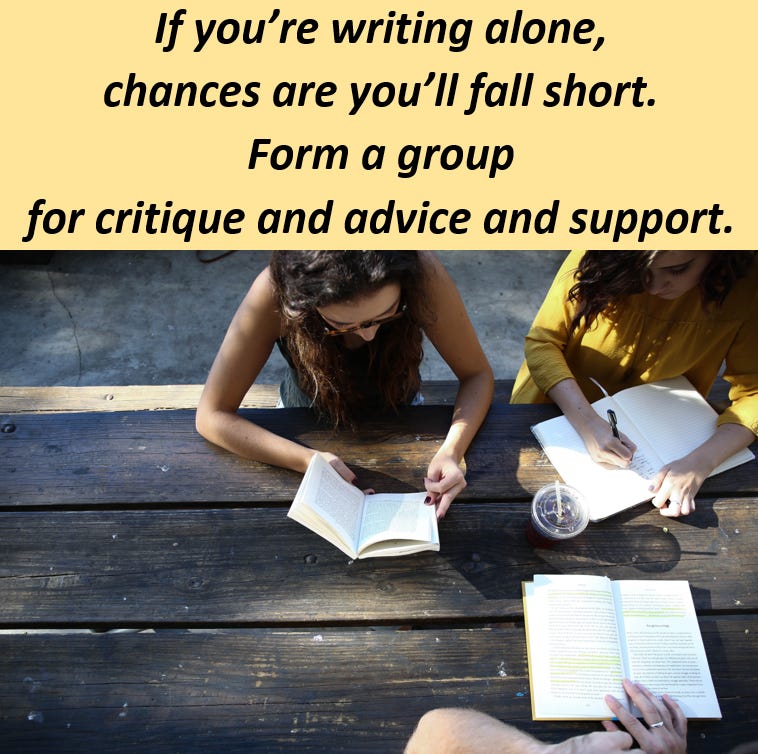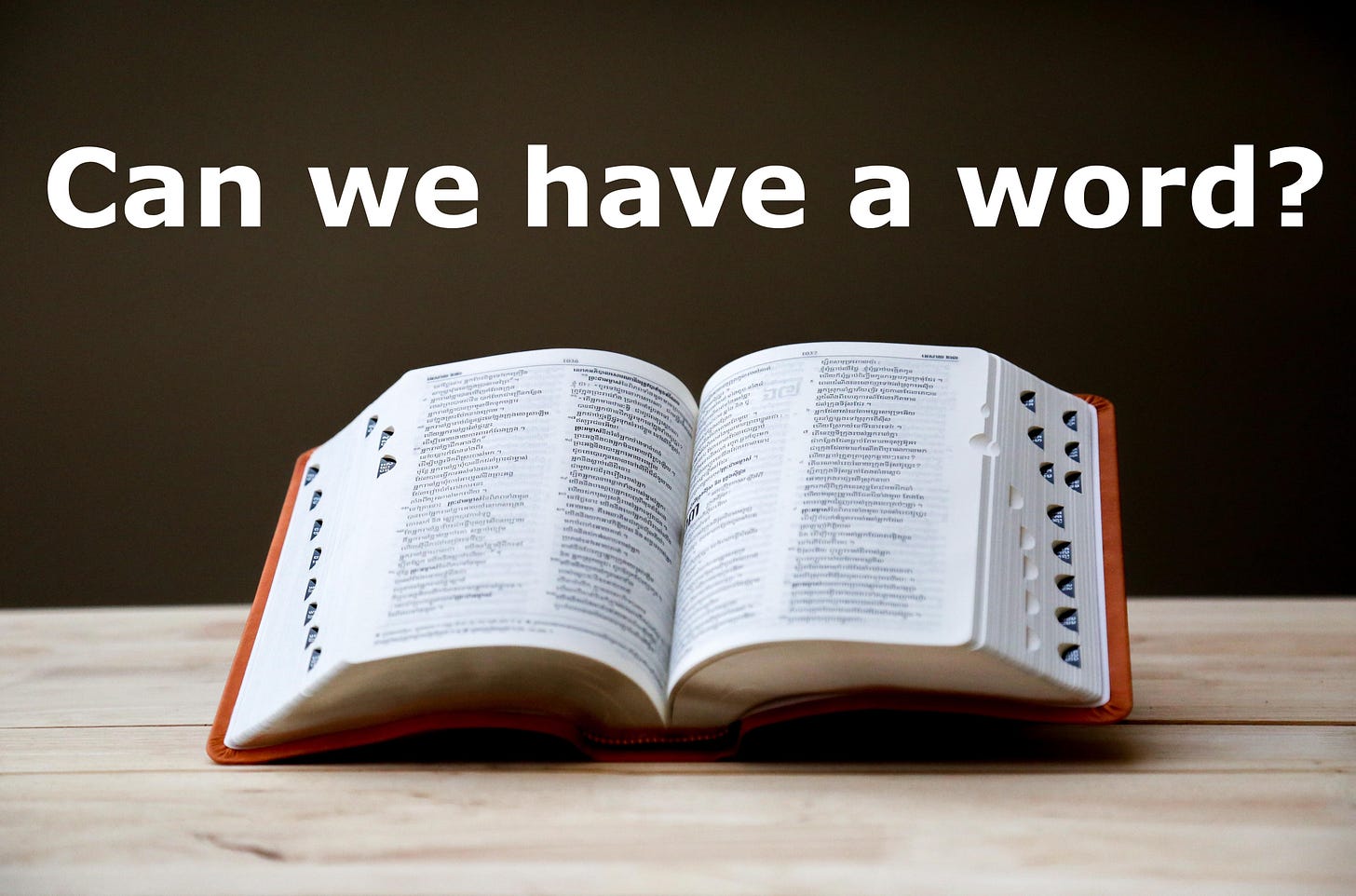Family, Work & Friends: Dealing with Attitude on Your Writing
Issue #28, Family, Work & Friends 2 of 2
“They hate me! Family/Friends don’t have my back!” (No. They’re simply not writers. Not empathizing is not an attack.)
Tod Brison in his Medium article “Six Types of People Who Insult Your Writing (And What To Do About It)” offers a stellar line which puts insulting comments in perspective:
Consider the following reddit thread (edited), in which a member told of being attacked by a contumely (a humiliating or scornful insult): “I wrote a few pages of [a] story and my best friend pipes up and says the whole thing is crap, and now writing to me just seems pointless.”
To which I’d say: if you want to write, you have to develop thicker skin.
I’d also choose better best friends. Definitely that. One respondent to the thread added especially good advice:
“Anyone who does not give constructive criticism I would ignore. It is import to get feedback from people who are not your friends or family IMO. I joined a critique group and it really helped my writing. I recommend looking for a local writer's group and see if they do critiques.”
Let’s segue from insulting comments to no comments. Because as hurtful as derogatory words can be, at least an insult implies that some attention has actually been paid. What might be worse is being ignored entirely, and receiving no comment or notice at all. It’s as if you never wrote. This is especially tough if from someone to whom you’re close. That’s when you need to put up your defenses.
In Writer Unboxed in “The Rule and 12 Tips for Writers and Their Family and Their Friends,” Juliana Baggott tells us that years have gone by without comment on her writing from her sister. She deals with it by cordoning off her writer self from her sister self. After all, she concludes, “They didn’t ask to have a writer for a sister.”
Baggott identifies those people in her life she “will never give up on” (including children and significant others), then follows this rule: “I will never let someone’s personal reactions to my work change our relationship.”
Anne R. Allen’s Blog on “Unsupportive Friends and Family” lists several potential reasons for our loved ones’ indifference or negativity. She suggests they may act this way to protect us from the pain of trying to get published, or because “they’re afraid of seeing themselves in your writing.” But the biggest reason, Allen asserts, might just be that “…those people can be super-negative about your work because they so desperately want to write but can’t allow themselves to put in the time.”
Allen concludes her piece with the suggestion that you “…meet other writers.”
Lisa Fellinger, in her article titled “How Writers Can Deal with Unsupportive Family and Friends” in C.S. Lakin’s Live Write Thrive, also steers her readers towards this upside. She says: “…while it’s disappointing and discouraging when family and friends don’t support your dream of writing, there are many individuals out there who will support it. Writing can feel like a lonely, isolating activity, but it doesn’t need to be…”
Both of these harken back to the Reddit thread respondent who suggested joining a critique group. This brings us nicely to a comment very shyly stated to me by a student after class the first day. It wasn’t phrased in the form of a question, but it fits here under:
I’ve never taken a writing class before and met other writers. It’s nice.
After hearing this, I realized three things, that 1) this young woman was a serious writer, and 2) so far she’d pursued it by herself, and finally 3) she was reveling in the realization that there were others like her. The very next class I gave her contact information for a local group in which she’d be able to connect with other creative peers.
There is much to be said on the subject of writer’s groups, including how to get one together, definitions, suggested goals and focus, recommended formats, dealing with problems, etc. We’ll chat all this over during the next two issues. But first, here's a last positive on hearing something negative:
Let’s close with a noun we heard earlier in this issue. Hope you won’t feel too insulted if you’ve forgotten its meaning.
What is a contumely?
This one is a bit antiquated, but let’s bring it back! Next time someone ridicules you, blow them away by responding: “Must you lower yourself to using contumelies?”
Action Plan:
On X (formerly Twitter), I post a new daily rhyming writing tip on which many of these issues are based. Follow—you know you want to.
Special Issue
On August 20, I’ll announce the winner of the first Writing Rhythm Fiction & Poetry contest. For this, see you in five days!
Next Regular Issue
#29) Writer’s Groups: : Definitions and Types. Writer’s Groups 1 of 4. See you for this in two weeks!
Craig




















A few "family" members posted negative reviews on a few of my published pieces... that's not attitude, that's envy...